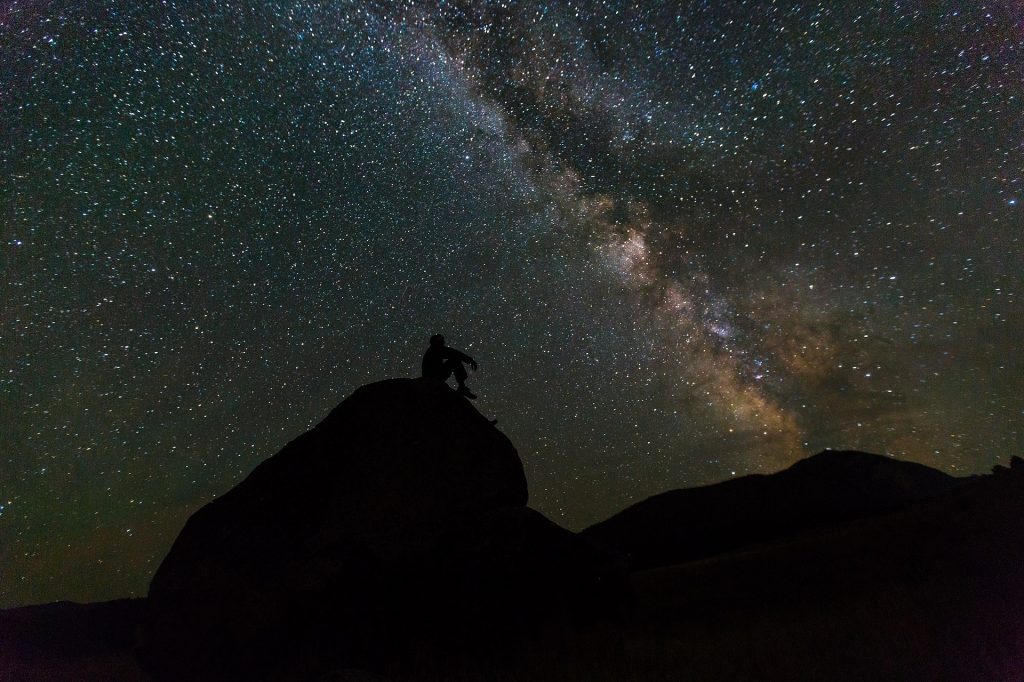My friend Renata has just come back from Iceland. She is telling me during a Sunday stroll on the Southbank, just as we pass The National Theatre and reach towards Embankment bridge, that she has become interested in volcanoes. Just after she casually mentions me she has begun to experience severe fear of flying and screaming in her sleep.
’Can you imagine?’ she says, as we click-clack the pavement with our mid-heeled boots. ’We are actually walking on lava. Just beneath us, there is hot liquid that could kill us all in an instant if it were to find a way through.’
I suddenly remember my geology lessons. Of course I knew all that. Just like I knew that some (perhaps most) stars are light memory, when my husband expressed his epiphanies whilst reading Stephen Hawking’s A Brief History of Time. I realise I already knew that what we see in the sky (once in a blue moon – excuse the pun – when we can actually see the stars) are dead celestial bodies whose light continues to travel towards an infinite and indefinite destination. I just chose to forget.
’It’s funny how we tend to forget we are nothing but miniatures in this world,’ I say. ’Sometimes it’s important to remember to put things into perspective.’
’That’s why I became interested in volcanoes,’ says Renata. ’I find them strangely comforting.’
”I found earthquakes, even when I was in them, deeply satisfying, abruptly revealed evidence of the scheme in action,” notes Joan Didion in her memoir The Year of Magical Thinking. ” That the scheme could destroy the works of man might be a personal regret but remained, in the larger picture I had come to recognise, a matter of binding indifference.(…) As it was in the beginning, is now and ever shall be, world without end. On the day it was announced that the atomic bomb had been dropped on Hiroshima those were the words that came immediately to my ten-year old mind.”
As it was in the beginning, is now and ever shall be, world without end.
’Did you know there is a dormant super-volcano in Yellowstone park that could destroy life on the entire planet if it ever erupts?’ I say.
(Note: *I’ve since found out that even though a super-eruption would lead to climate cooling due to ash and gases emitted into the atmosphere and, consequently, to famine, there is no evidence that the entire life on the planet would be wiped out. However, quite a lot of us would.)
’In Yellowstone park you say?’ says Renata pensively.
’Ahem,’ I say and we keep walking.
Later that evening I get a text from my friend Lydia, who suffers from frequent panic and anxiety attacks and is undergoing regular therapy, just about coping with life in London and the demands of her job: ’I watched a documentary on universe last night and slept like a baby. I felt so much more calmer and relaxed and realised life is full of possibilities and must be celebrated.’
I’ve not been much better than Renata and Lydia or any of my other friends reporting anxiety and depression because of loneliness, work pressure or loss of purpose. I’ve been stressed like I’ve never been stressed before by personal and professional challenges as well as by the state of the world and its politics. I smile at Lydia’s text as she too came to the same realisation that the more we appreciate our smallness against the magnitude of the universe, the happier we are likely to be in this transient stage that is called human life.
At least for today, mighty volcanoes, travelling light and the immensity of the universe restore my sanity.
As it was in the beginning, is now and ever shall be, world without end.


